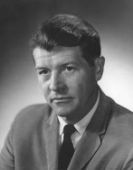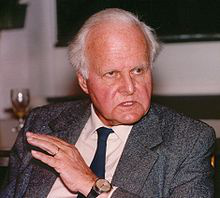
The new paradigm I’m referring to is an ongoing theme of mine — the reunification of science and religion.
I have been reading a book called Cosmos, Bios, Theos¹. In it 60 prominent scientists were asked their view on the fundamental questions:
- what was the origin of the universe?
- how did life begin?
- where do humans come from?
- do you believe in God?
There is much that I could quote, but here I’ll just refer to two interesting responses. Professor Christian B. Anfinsen, Professor of Chemistry and joint winner of the 1972 Nobel Prize for Chemistry, says that he believes in the Big Bang, that the origin of life was “an inevitable consequence of the evolution of the universe, physically speaking”, that homo sapiens “developed from lower forms by… processes of mutation and selection”. A spiritually minded person might well have objections to much of this, these responses suggesting that he is an orthodox scientist with the expected modern beliefs. When asked about the existence of God, however, he replies: “I think only an idiot can be an atheist”. (Richard Dawkins, Daniel Dennett etc., take note.) “We must admit that there exists an incomprehensible power or force with limitless foresight and knowledge that started the whole universe going in the first place. Such a process may have occurred many times earlier, and, indeed, must have, and will very likely occur again in the future”.
This sounds more like the Ancient Wisdom teaching found in Hinduism — the Divine Mind, and a process of evolution and involution — a truly spiritual response.
Anfinsen goes on to quote Einstein: “That deeply emotional conviction of the presence of a superior reasoning power, which is revealed in the incomprehensible Universe, forms my idea of God”². I have heard Richard Dawkins claim on a radio programme that Einstein was an atheist. Don’t let anyone tell you that and let them get away with it.
 Many modern (materialist) scientists say that science and religion are incompatible and irreconcilable. Professor Carl Friedrich von Weizsäcker, an eminent physicist, says: “I think the relationship between religion and science should be friendship. In the last resort their messages might turn out to be identical, but this would mean both of them would have to mature. At present I feel that just in friendship they should ask each other critical questions. Religion might ask science whether scientists understand the immense danger into which they bring the world, mankind, and the living world on our earth, if they do not take their responsibility for the future as their first duty. On the other hand, science should ask religion, in all friendship, whether it is not resting on concepts which are outmoded by five hundred years or more. Both of them ought to mature and they would be far closer to each other than they realize today”.
Many modern (materialist) scientists say that science and religion are incompatible and irreconcilable. Professor Carl Friedrich von Weizsäcker, an eminent physicist, says: “I think the relationship between religion and science should be friendship. In the last resort their messages might turn out to be identical, but this would mean both of them would have to mature. At present I feel that just in friendship they should ask each other critical questions. Religion might ask science whether scientists understand the immense danger into which they bring the world, mankind, and the living world on our earth, if they do not take their responsibility for the future as their first duty. On the other hand, science should ask religion, in all friendship, whether it is not resting on concepts which are outmoded by five hundred years or more. Both of them ought to mature and they would be far closer to each other than they realize today”.
I agree with his final conclusion, but am not quite so sure about the route by which he arrived there. He thinks the main thing that science can learn from religion is related to questions of morality and ethics; he does not seem to think that science has anything scientific to learn from the ancient religions (in contrast to Fritjof Capra, who found parallels to quantum physics in Hinduism, Taoism, and Buddhism).
He does not say precisely which concepts he thinks are outmoded. He is “quite satisfied (scientifically) with the origin of life as described by modern theories of molecular biology”. However, he goes on to bring quantum physics into the picture: “The question then is, what are molecules? Quantum theory, I think, would be fully in agreement with the idea of what I call a spiritualistic monism, that is, that there is not something which is not living and beside which there is life which ought to be explained, but that the basic essence of the universe is to live”³.
He therefore seems to be saying that the universe is a living organism, which is what ancient spiritual traditions were saying a lot longer than 500 years ago. He obviously doesn’t think that this is an outmoded religious concept, although materialist scientists might disagree.

Footnotes:
1. Edited by Henry Margenau and Roy Abraham Marghese, Open Court, 1992
2. pp138–40
3. pp128–129